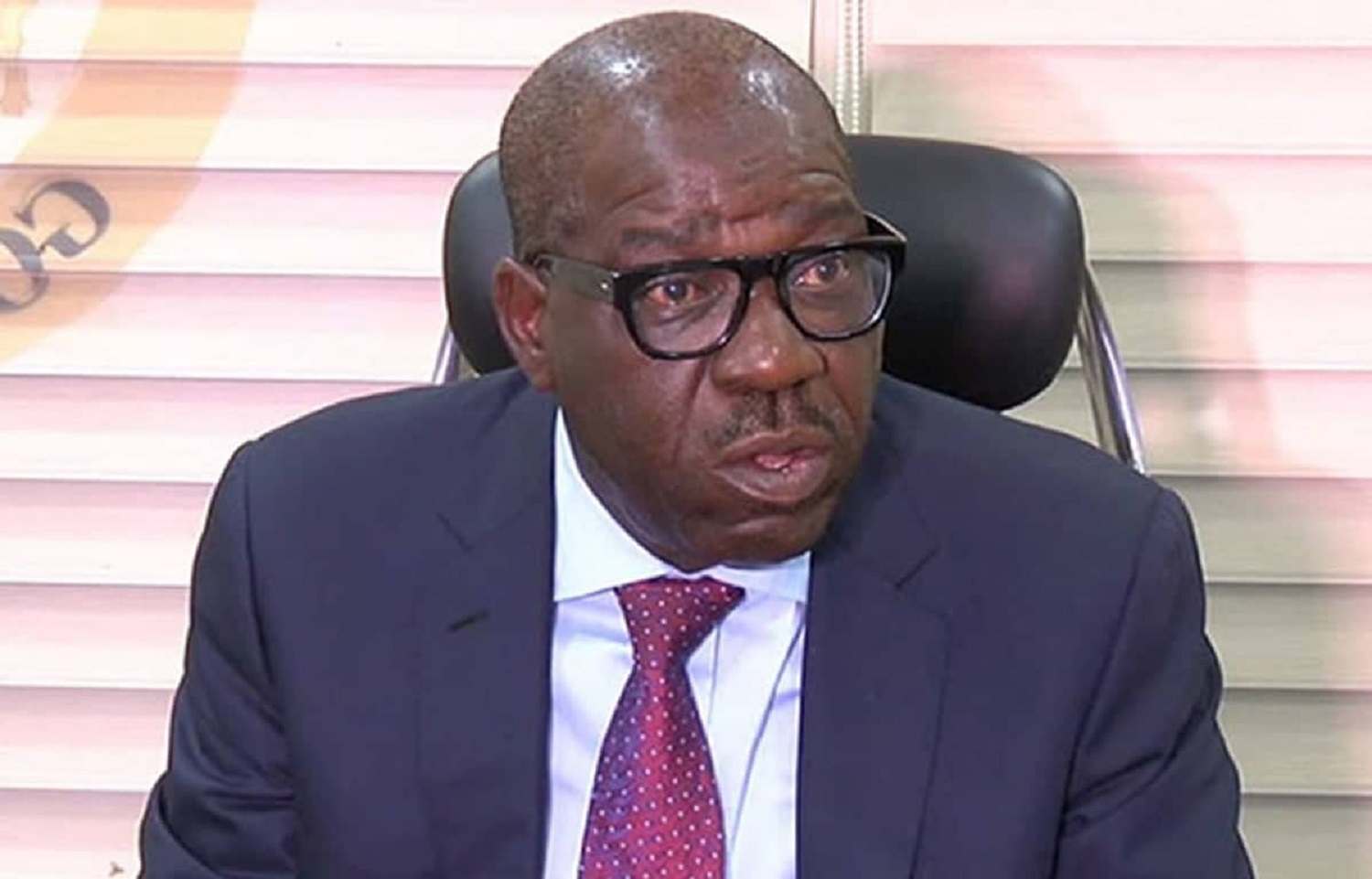Edo State Residency Card: Trampling on constitutional rights
Edo State Governor Godwin Obaseki recently unveiled his new pet project, an unheard of “State Residency Identity Card”. Speaking at the launch, he said “We estimate that we have about five million people in Edo State but we don’t know them”, and that he intends to issue a minimum of one million cards, designed in […]

Governor Godwin Obaseki of Edo state
Edo State Governor Godwin Obaseki recently unveiled his new pet project, an unheard of “State Residency Identity Card”. Speaking at the launch, he said “We estimate that we have about five million people in Edo State but we don’t know them”, and that he intends to issue a minimum of one million cards, designed in partnership with his financial partners, before he leaves office.
It is incredibly senseless to spend scarce funds purportedly to know how many people reside in any state when there is a national census planned for the first quarter of next year and the massively indebted state can work with census results rather than squandering borrowed money!
Many questions remain unanswered. Why was the card developed in conjunction with “financial partners’ and not the Nigerian Identity Management Commission (NIMC)? Who are these financial partners and what do they stand to gain? Why is the card linked to Bank Verification Numbers (BVNs), when no law forces Nigerian citizens to operate bank accounts and the National Identification Number (NIN) is not linked to BVN?
To coerce citizens into obtaining the card, Governor Obaseki threatened to withdraw government services from those without one. When queried as to exactly what services the state government is rendering that they are threatening to withdraw, and how useful the card is to the holder, Obaseki incredulously replied that, “You may not have need for the card physically, but you must have your identity card in order for us to know you!” Realising that his explanation would not encourage citizens to obtain cards, Governor Obaseki threatened to force the issue by trampling on constitutional rights and not allowing citizens to buy land, register building plans, get health insurance, or send their children to school in Edo State if their parents don’t possess a card! The best that can be said about this threat is that it is retrogressive, ill-motivated, ill-considered, and unworkable. What’s more, it will cause untold problems for the nation if adopted by every state government. Questions are rightly being asked as to why citizens without cards should be denied government services when the plan is to issue them to only 20 per cent of citizens before Obseki’s tenure expires in mid-2024. Furthermore, it’s impracticable to set a target of issuing one million residency cards within the time frame as it would require issuance of at least 2,000 cards per day including holidays and weekends! Indeed very little makes sense about the card.
From Soludo through Tinubu – pot shots, no substance
Group to train 1m youths in software development
Governor Obaseki claimed that the card is “free”. This of course is unlikely to be true unless the unknown “financial partners” are supplying the cards free of charge! It is far more likely that the government is simply hiding the true cost.
The Edo State Head of Service claims the cards will help government plan effectively for the development of the state. It seems not to bother him that the general consensus of opinion in Edo State is that having spent six years in office, Obaseki’s performance is woeful compared to that of his predecessor who did not require residency cards to bring massive development to the state!
There are far too many inconsistencies in the attempted justification of the Edo Resident’s Card. At an Edo North Security Council Meeting held in Auchi, Governor Obaseki claimed that the card became imperative due to growing insecurity in the state. From purportedly tackling insecurity, the purpose of the card has evolved into forcing residents into the tax net by depriving them of their constitutional rights.
From a promising start, the Obaseki administration is at its lowest ebb of unpopularity. Its concentration on internal revenue generation by taxing everything in sight while doing nothing to improve the lives of the majority who live below the poverty line has led to disaffection and numerous protests. The Chairman of the All Progressives Congress (APC), Edo State Chapter, Col David Imuse (rtd), rightfully condemned the card because Sections 25 and 26 of the Nigerian Constitution bestow the power to decide who is a citizen upon the federal government’s National Identity Management Commission (NIMC) which issues National Identity Numbers (NINs).
It is evident that the Edo State government does not fully comprehend the relationship between citizenship and residency, perhaps this is why they have not deemed it fit to quote any law which empowers them to deprive citizens of their rights. Citizenship of Nigeria and by extension residency is a status legally granted to all Nigerians by birth which should enable them to enjoy all the privileges that come with that status. Under Nigeria’s residency laws, residents must be physically in the country for at least 183 days in any 12 month period. Does it make sense that Edo indigenes in Diaspora or living in other parts of Nigeria who do not live in the state for up to 183 days in a year and do not qualify as residents may not buy land, own a house or send their children to school in the state?
Policies which make no sense from either a poetic or logical standpoint and have no obvious reasonable explanation are said to “have no rhyme or reason”. William Shakespeare made the phrase popular in his play entitled “The Comedy of Errors”. This decision by the Edo State government to coerce Edo people and trample on their constitutional rights is simply another comedy of errors!
